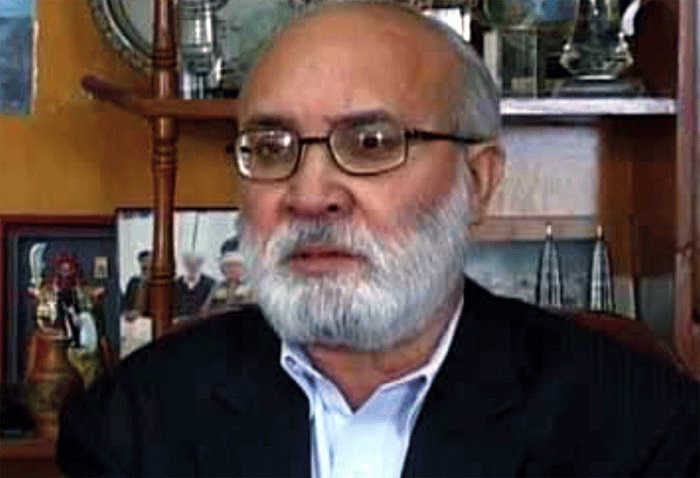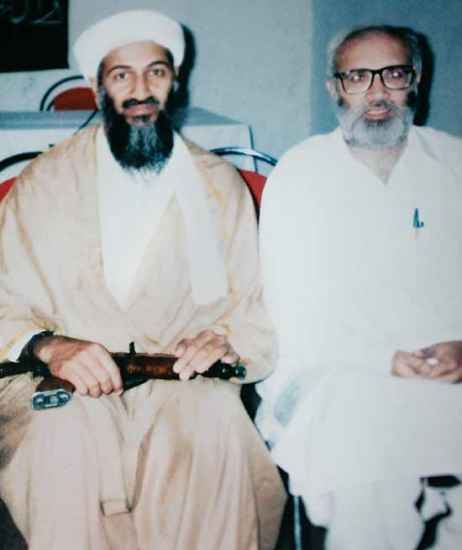
Even in these times when world is fighting against the Coronavirus pandemic, Afghanistan continues to be in news for different reasons. Soon after Islamic State Khorasan– IS(K) took responsibility for gruesome terrorist attack on the Kabul Gurdwara, the special forces of Afghanistan arrested Aslam Farooqi, the chief of IS(K). Thereafter, Pakistan promptly demanded the custody of Aslam Farooqi, which Afghanistan has now denied. News Intervention and Sangar Media House spoke to Rahimullah Yusufzai, Pakistan-based senior journalist and a security analyst. He has been a part of Track-II dialogues with Afghanistan and India. Rahimullah Yusufzai was also the first to interview Taliban’s founder Mullah Omar and has interviewed Osama bin Laden twice. He offered a fresh perspective into the recent developments in Afghanistan.
Vivek Sinha/Dosten Baloch: Afghanistan’s National Directorate of Security (NDS) has arrested Aslam Farooqi, who is the chief of Islamic State Khorasan (IS-K). Immediately after this arrest Pakistan sent a request to the Afghanistan government to hand over Aslam Farooqi. Why do you think Pakistan wants the custody of IS(K) chief Aslam Farooqi?
Rahimullah Yusufzai: This might not be the first time Pakistan is seeking custody of someone who has been captured in Afghanistan, because (even earlier) there were Pakistanis who had fled to Afghanistan. Same is the case with Aslam Farooqi who is also known as Abdullah Orakzai. Because Aslam Farooqi is a Pakistani citizen and he had been a part of the Tehreek-e-Taliban (Pakistan) in the Orakzai tribal district in Pakistan’s FATA (Federally Administered Tribal Areas) and he had been fighting the Pakistani state as well. And then Aslam Farooqi joined the Islamic State (Daesh) Khorasan and his group under his leadership claimed responsibility for a number of terrorist attacks in Pakistan. So Pakistan is seeking his custody because it says this man has committed crimes and terrorist attacks in Pakistan.
But let me also tell that there is no extradition treaty between Afghanistan and Pakistan and Afghanistan has declined to hand him over to Pakistan because Afghanistan says he has committed terrorist attacks in Afghanistan and he will be tried in Afghanistan. So I don’t think that Aslam Farooqi will be delivered to Pakistan. In the past also Afghanistan has never handed over any wanted Pakistani to the Pakistan government. Never in the past. While on the other hand, Pakistan has handed over a number of Afghans including the Afghan Taliban who were wanted by the Afghanistan government. And I don’t think that this issue will be resolved because the relations between the two governments (Pakistan and Afghanistan) are not friendly.
Vivek Sinha/Dosten Baloch: Will the arrest of IS(K) chief by Afghanistan and the Afghanistan government’s refusal to hand over Aslam Farooqi to Pakistan create further unrest in the region?
Rahimullah Yusufzai: I don’t think it will lead to any disturbance because this was already understood that Pakistan may demand his (Aslam Farooqi’s) custody and that Afghanistan will not agree. It has happened in the past as well, relations are not good (between Pakistan and Afghanistan) and it will not become friendly or more hostile because of this one incident. Even the Pakistan government was aware that Afghanistan government may not deliver Aslam Farooqi to Pakistan.

Vivek Sinha/ Dosten Baloch: The Taliban in Afghanistan have released 20 Afghan government prisoners and the Afghanistan government has in return released 300 Taliban prisoners. How will this prisoner exchange impact the domestic politics of Afghanistan?
Rahimullah Yusufzai: This is an issue concerning Afghanistan so whatever impact it may have, it will be on Afghanistan and not on Pakistan. As the Americans say, Pakistan’s role is that of a facilitator for peace talks…to facilitate to bring Taliban to the negotiations table with the Americans. And now the US has been asking Pakistan to ask Afghan Taliban to hold direct peace talks with the Afghanistan government.
Also, this release of prisoners is part of the Doha peace agreement signed by the US and Taliban on 29th February. The timeline that was announced in the peace agreement has not been actually met. There has been delays. There was supposed to be an exchange of 6,000 prisoners. 5,000 Taliban prisoners were to be released by the Afghan government and 1,000 Afghan government prisoners by the Taliban by March 10thas per the agreement, but this did not happen. And the next stage was intra-Afghan peace negotiations which was also supposed to start on March 10th after the exchange of prisoners, which has now been delayed.
I think these delays are causing concern and there are now some doubts about implementation of the peace agreement between the US and Taliban. Now that some prisoners have been released so at least there is a good start. It has created some hope. But we must remember that 6,000 prisoners have to be exchanged and Taliban have been saying that they will not join the intra-Afghan negotiations until their prisoners are released. I think that this will take some time and there will be further delays.
Another issue which is holding up intra-Afghan negotiations is the political dispute between President Ashraf Ghani and his rival Dr Abdullah Abdullah, because they were supposed to reconcile and try form a coalition government as they did earlier in 2014. They were also supposed to form a joint negotiating team to talk to Taliban which, I think, would be in the next stage. But there’s some hope that probably President Ashraf Ghani and Dr Abdullah are moving towards some kind of power sharing, because the Americans are also mediating among senior Afghan politicians. Hamid Karzai, Professor (Abdul Rab Rasool) Sayyaf, Younus Qanooni, Kareem Khalili are trying that there should be reconciliation so there is now expectations that finally this dispute will be resolved and maybe Dr Abdullah will get a share of power in a government led by President Ashraf Ghani.
Vivek Sinha/Dosten Baloch: What will be the larger impact of the ongoing Pashtun movement in Pakistan and in Afghanistan? Can this Pashtun movement and the PTM have any kind of impact on the peace talks in Afghanistan?
Rahimullah Yusufzai: This movement for the rights of Pashtun people in Pakistan called the Pashtun Tahafuz Movement (PTM) mostly has young people and also those who have suffered because of militancy and military operations. They (Pashtuns) have organised themselves and they are demanding their rights and they get some support in certain areas in the former FATA (Federally Administered Tribal Areas) and other tribal areas. PTM has got more support in North Waziristan and South Waziristan where PTM has also won elections and have two seats in the National Assembly. I think that PTM still does not have much support in other areas such as Khyber-Pakhtunkhwa, Karachi or Balochistan. They have pockets of support but not enough to win seats in Parliament. Also, PTM and its leader Manzoor Pashteen have clarified that they are working for the rights of Pashtun people in Pakistan and not of the Afghan Pashtuns. He has said that they are not working in Afghanistan and the Afghan Pashtuns have to struggle for their own rights, whatever they are.
So I think this movement is confined to Pakistan, though it has some support abroad among the Pashtun diaspora. It’s not going to have much impact on the Afghan peace talks because PTM is clearly supporting the Afghanistan government against Taliban and it is also very critical of the Pakistan Military. And the Pakistan Military will not give it a role in the peace processes in Pakistan or in Afghanistan. Yet, I believe that PTM’s campaign in Pakistan will continue. Some of their demands have been accepted but they still have many more demands because of the suffering of the people who have been displaced due to militancy and military operations. Because the people who are missing, killed, injured or arrested due to the land mines… and it has taken a toll on the lives of people in the former tribal areas and also due to unemployment. PTM will continue to have some support but I don’t think that it will replace other Pashtun political parties like the ANP (Awami National Party) that has more electoral support in Pakistan.
(News Intervention appreciates the efforts of Sangar Media House for facilitating this interview)
Dosten Baloch is Editor-in-Chief of Sangar Media House. Follow him on Twitter @DostenBaloch1
Sangar Media House: @DailySangar
